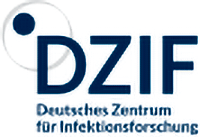10.11.2022
Meeting of the EU consortium HELP - Helminth Elimination Platform
at the DNDi in Geneva on November 8th and 9th, 2022. The progress of the project, which is now in its third year, was discussed with the partners from Swiss TPH (Basel, Switzerland), DNDi (Geneva, Switzerland) , Muséum national d'Histoire naturelle (Paris, France), Ifakara Health Institute (Bagamoyo, Tanzania), University of Buea (Buea, Cameroon), University Hospital Bonn and Elanco (Leverkusen,…





